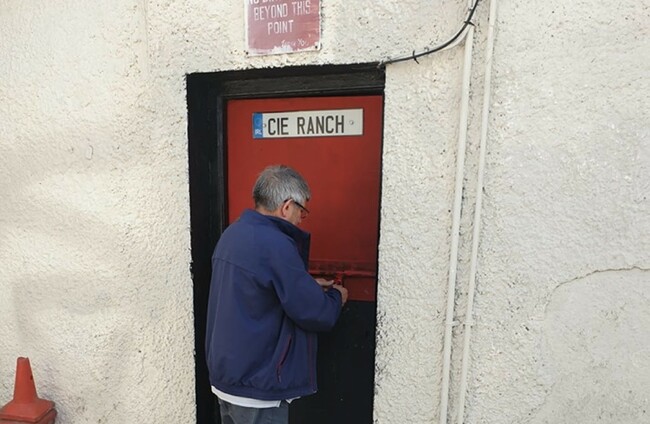ON 21 AUGUST, Ian Dixon posted a message on his club’s official Facebook page that he hoped he would never have to write.
“CIE Ranch have informed the Leinster Senior League we will not be competing for the coming season,” it read. “This is not a decision that was taken lightly and involved many sleepless nights.
“Unfortunately, the commitment wasn’t there apart from a select few senior players. (Those lads know who they are and we are forever grateful to them.) This is a problem affecting amateur football all over the country.”
And so ended the involvement CIE Ranch in the Leinster Senior League.
The club had been formed in 1975. Even relatively recently, they had enjoyed plenty of success, winning prestigious titles and cups. Just last year, they reached the second round of the FAI Cup. Coming up against soon-to-be First Division champions UCD, they were 2-1 up until the 89th minute, before Jason McClelland saved the Students, who won 6-2 after extra-time.
It seems inconceivable that just 12 months on from that memorable game, CIE have folded.
“The average age of our team was over 30 and at our final training session, we had eight lads who’d been there for five-six years,” club secretary Dixon tells The42. “They’re all in their early-to-mid 30s, families at home, full-time jobs. They’re coming down training twice a week, they’re playing a match.
It’s a generational thing now. I go to watch a lot of local matches. You can see the age of teams. There are no young fellas playing anymore. As soon as they come out of underage football, as soon as they haven’t got their mammy and daddy there, they find the drink, going out with their friends, there are lads who would rather update their Instagram stories than go and play a match on a Sunday morning.”
He continues: “When I went to the Ranch. We were mainly in our early 20s, there were one or two senior players.
“You’ve the social media aspect now. You don’t really see kids playing outside anymore. When you’re a schoolboy, your mam and dad drag you out to football training on a Tuesday and Thursday. When you don’t have to be dragged out and you make a decision for yourself, you’re not going to go.
“My father played football for years. He went training twice a week, played his match on a Saturday and had a few pints afterwards. That was the done thing every weekend. My mother accepted that. He knew that’s what he did, he had to have a hobby.
“Some lads now love to turn up on a Sunday morning and play a game, but they don’t train. It’s not fair on me, if I train twice a week and a lad only turns up on a Sunday morning and gets a game.
“You can see it changing. You’ve Facebook, Instagram and all these ways of communicating with people, you don’t need to go and play football or talk to your mates. You don’t need to go to the pub when you can sit at home texting all night.”
In addition to a lack of commitment from players, Dixon says there are also practical issues to consider. He says there are “too many” clubs in Dublin, and believes others will ultimately endure a similar fate to CIE, listing a number teams that he believes are “on the brink”.
It is by no means solely an Irish problem. A 2017 Independent article described how “English football’s grassroots are dying a slow, painful and avoidable death”.
“Far away from the gilded, professional environment of the Premier League, many grassroots clubs are struggling to stay afloat,” added a piece in The Standard last year.
Even clubs at a higher level have been in grave difficulty, as the respective debacles involving Bury and Bolton illustrated during the week.
We’d be considered a big club and well-known club, but bigger clubs will fold in the next few years,” adds Dixon. “I think it’s going to get worse before it gets better. I think there should be some sort of cap on local clubs. I think the GAA do it — you can only have so many.
“It’s too easy to just set up a football club. If I pay the insurance and have the players, I can set up a football club.
“The Leinster Senior League have gotten rid of the insurance costs for the clubs in the last two seasons, so it’s even cheaper than it was for clubs to set up.”
The serious issues at CIE were apparent long before Dixon met with treasurer John Merriman last month and the pair made the difficult decision to pull the plug.
Alarm bells had been ringing back in July, as highly-rated manager Keith Cronin left to take the Cherry Orchard job.
“If he still had lads playing and training, he’d still be at the Ranch. He would have turned down Cherry Orchard, but if they come calling and we’re playing pre-season friendlies with 10 bodies, why would you stick around?
“We were plastering over the cracks, and when he left, it was a nail in the coffin, it was time to pull the plaster off and say ‘this is it’. We met with the club and the players, we said we’d give it a go, brought in two new managers, but it just went back to the way it was.
“For the club I love and have given 11 years to, I’m not going to stand on the sideline and see my mates fight relegation and get beaten every week.
You’ve also got the problem of well-known clubs paying players, which is illegal in amateur football. I could tell you how much they’re getting paid, because they’re all over Twitter boasting about it. Nothing’s been done there.
“And a lad would rather go up and play at a club 40 minutes or an hour away from his house for a few quid. How can a local club that’s struggling to pay its bills compete with that?
“Leagues are saying they’re going to clamp down on it, but if I’m giving a lad €100 on a Sunday morning, how can you prove that? It’s been going on years.”
Dixon continues: “We knew from the middle of last season [we were in trouble]. As soon as the cups were gone and you see promotion drifting away, the younger lads get less interested, whereas the senior players will run through a brick wall for the Ranch.
“I shed a tear for Darren Brady, the captain, he’s been at the club 16 years. He’s heartbroken about it and although he has another year or two left, he probably never will play for another football club.”
The42 is on Instagram! Tap the button below on your phone to follow us!












Congratulations Truagh! Great win.